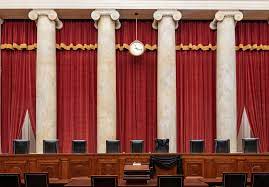New Jersey Supreme Court Limits Non-disparagement Agreements in Settlement of Discrimination Lawsuits
New Jersey employment lawsuits alleging discrimination, harassment or retaliation are often resolved in settlement agreements. The New Jersey Supreme Court recently clarified the permissible scope of non-disparagement agreements in those settlement agreements in the case of Savage v. Township of Neptune.
permissible scope of non-disparagement agreements in those settlement agreements in the case of Savage v. Township of Neptune.
Background
Christine Savage was a police officer with the Neptune Township Police Department. She filed a lawsuit against the Department and certain individuals in 2013 alleging that they violated the New Jersey Law Against Discrimination by sexually harassing her, discriminating against her because of her gender, and retaliating against her because of her complaints of discrimination. The lawsuit was settled in 2014. As part of the settlement the Township agreed to give Savage access to training and promote her to sergeant.
 New Jersey Lawyers Blog
New Jersey Lawyers Blog


 decision has significant implications for how employees should handle allegations of misconduct and resulting discipline.
decision has significant implications for how employees should handle allegations of misconduct and resulting discipline. supported by pro-employer groups. However, the United States
supported by pro-employer groups. However, the United States  and a half”) for work beyond forty hours in any week. However, there are exceptions. The major exemptions are for executive, administrative, professional, and highly compensated employees. In addition to the requirements particular to each exemption, the employees cannot be paid less than the threshold for the exemption.
and a half”) for work beyond forty hours in any week. However, there are exceptions. The major exemptions are for executive, administrative, professional, and highly compensated employees. In addition to the requirements particular to each exemption, the employees cannot be paid less than the threshold for the exemption.
 circumstances, these
circumstances, these  nepotism, politics, discrimination, whistleblower retaliation, cronyism, or outright bribery. Since the entire purpose of the New Jersey Civil Service System is to ensure that hiring is based on merit, there is an appeal process for applicants who believe that their name was improperly removed from a Civil Service hiring or promotion list.
nepotism, politics, discrimination, whistleblower retaliation, cronyism, or outright bribery. Since the entire purpose of the New Jersey Civil Service System is to ensure that hiring is based on merit, there is an appeal process for applicants who believe that their name was improperly removed from a Civil Service hiring or promotion list.
 recently examined this doctrine in the context of the revocation of a teacher’s teaching certificate after an arbitration on tenure charges in the case of
recently examined this doctrine in the context of the revocation of a teacher’s teaching certificate after an arbitration on tenure charges in the case of  unreasonable or no accommodations or take leave unless medically necessary.
unreasonable or no accommodations or take leave unless medically necessary.